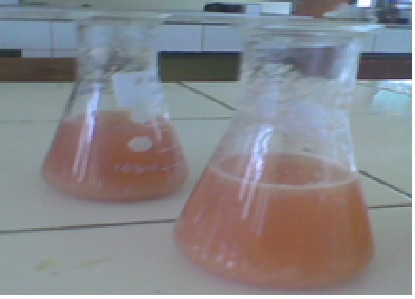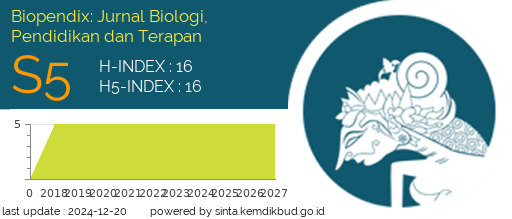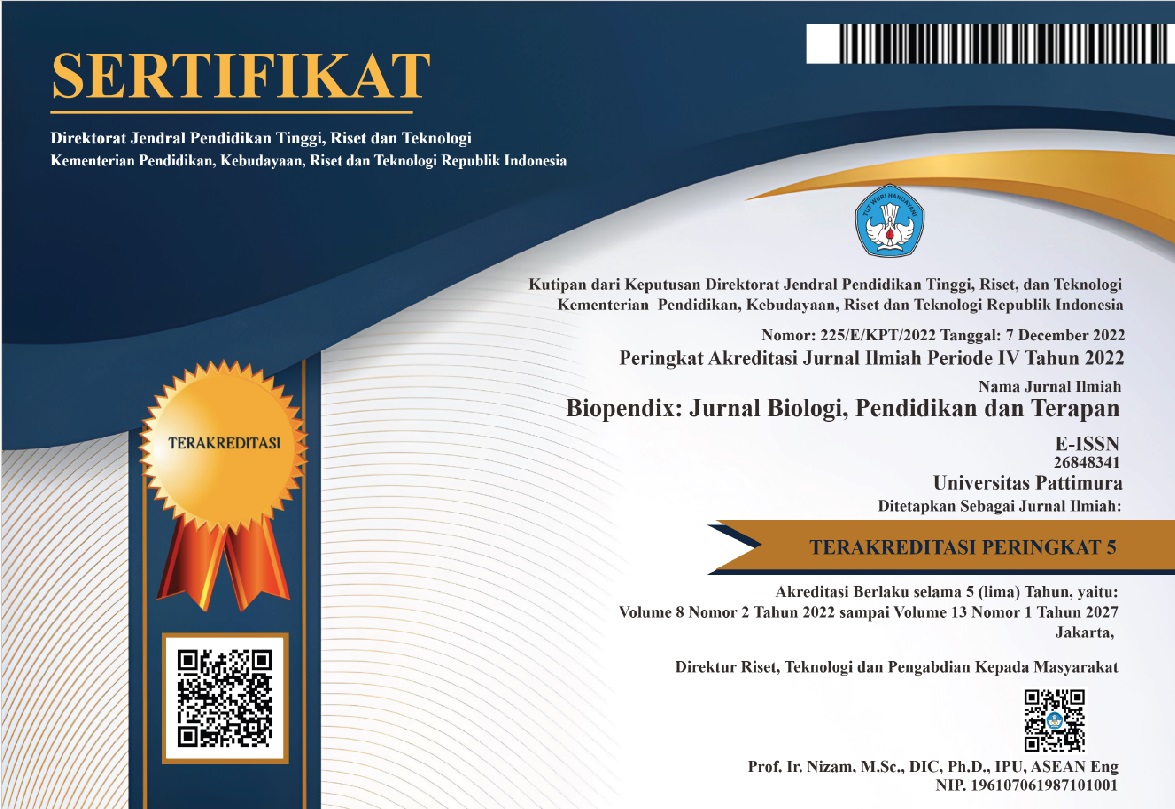PENGARUH UMUR PANEN SALAK TERHADAP KADAR VITAMIN C BUAH SALAK MERAH (Salacca edulis Reinw) DARI DESA RIRING KECAMATAN TANIWEL KABUPATEN SERAM BAGIAN BARAT
Abstract
Background: In Maluku Province, especially in Riring village, there is one variety of salak, namely red salak, which has a nutritional content, namely vitamin C. Vitamin C is a nutrient that acts as an antioxidant. This study aimed to determine the effect of the harvesting age of salak on vitamin C levels in red salak fruit.
Methods: This study is an experimental study using a completely randomized design (CRD) with three replications to determine the average vitamin C levels. Analysis of vitamin C levels using the titration method. The data obtained were analyzed using T-test analysis.
Results: Based on the study results, the average vitamin C content at harvest age is four months (12.45%), and the average vitamin C content at harvest age is six months (9.53%). The results of the T-test analysis showed that there was a significant effect between the two harvest ages because t-count (19.674)>t-table (2.776). This condition happens because vitamin C is a type of vitamin that is easily oxidized.
Conclusion: There is a significant effect between vitamin C levels of red salak fruit aged four months and six months old, where t-count (19.674)> t-table (2.776).
Downloads

Authors who publish with this Journal agree to the following terms:
- Author retain copyright and grant the journal right of first publication with the work simultaneously licensed under a creative commons attribution license that allow others to share the work within an acknowledgement of the work’s authorship and initial publication of this journal.
- Authors are able to enter into separate, additional contractual arrangement for the non-exclusive distribution of the journal’s published version of the work (e.g. acknowledgement of its initial publication in this journal).
- Authors are permitted and encouraged to post their work online (e.g. in institutional repositories or on their websites) prior to and during the submission process, as it can lead to productive exchanges, as well as earlier and greater citation of published works




 2
2






